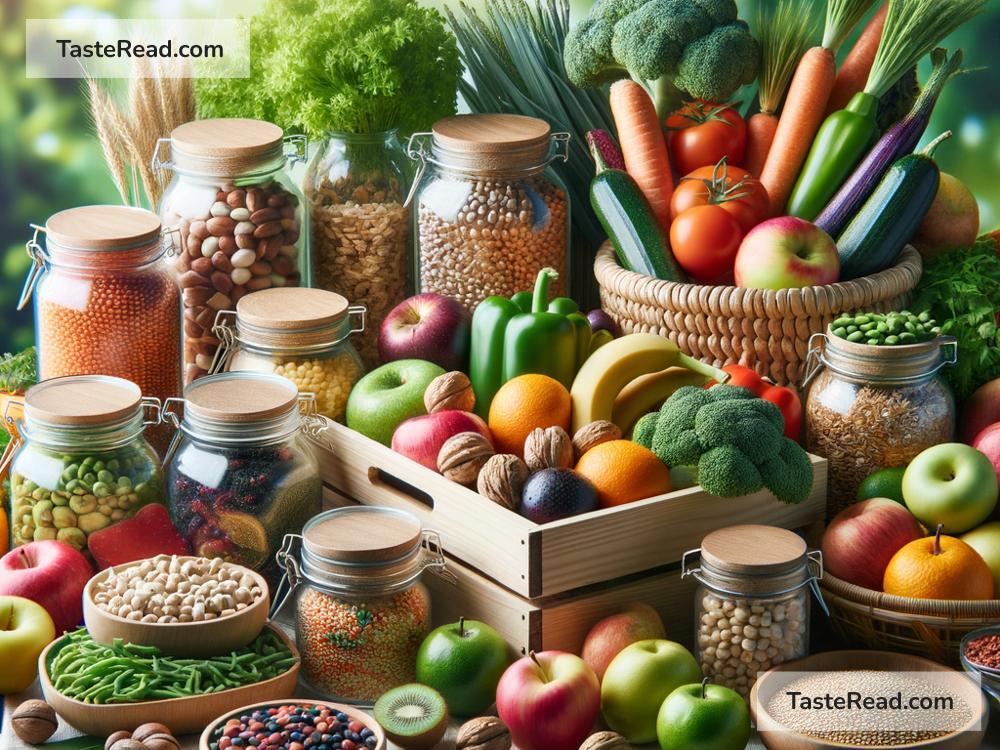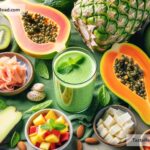Foods for Enhancing Environmental Health: Simple Choices for a Greener Future
The food choices we make every day don’t just affect our own health; they also have a big impact on the environment. By eating certain types of foods and following sustainable practices, we can help protect the planet while keeping ourselves healthy. In this blog, we’ll explore foods and habits that can improve environmental health in a simple, easy-to-understand way.
What Does Environmental Health Mean?
Environmental health is about keeping the planet clean and safe for everyone. It involves clean air, water, and soil—things that are essential for life. Many human activities, including food production, contribute to pollution, deforestation, and climate change. By being thoughtful about what we eat, we can make a positive difference.
How Food Choices Affect the Environment
The production, transportation, and disposal of food play a huge role in environmental health. For example, growing food requires water, energy, and land. Some foods, like meat, use these resources more heavily than others. Transporting food over long distances burns fuel and creates pollution. And when we waste food, all the effort and resources used to produce it are lost.
The good news? By making eco-friendly food choices, we can reduce our environmental footprint and support a healthier planet.
Foods That Support Environmental Health
Here are some types of foods and eating habits that benefit not just you, but the environment too:
1. Plant-Based Foods
Eating more fruits, vegetables, grains, nuts, and legumes is one of the best ways to improve environmental health. Plant-based foods generally require fewer resources to produce and create less pollution. For example, growing lentils uses far less water and energy than raising cattle for beef.
Switching to a plant-based diet doesn’t mean you have to give up meat entirely. Even reducing the amount of meat you eat—like having “Meatless Mondays”—can make a big difference.
2. Locally-Grown Foods
Buying food grown near where you live reduces the pollution caused by transportation. Locally-grown foods often use less packaging and are fresher, making them healthier for you and better for the planet. Farmers’ markets are a great place to find local produce, eggs, and other goodies.
3. Seasonal Foods
Eating foods that are in season in your area is another eco-friendly choice. When fruits and vegetables are grown naturally in the right season, they require less energy and water to produce. For example, buying tomatoes in summer instead of winter could mean they were grown locally rather than shipped from far away.
4. Organic Foods
Organic farming avoids using harmful pesticides and chemicals that can harm the soil, water, and wildlife. Choosing organic fruits and vegetables can help reduce pollution and protect biodiversity. Plus, organic foods are often healthier because they’re grown naturally without artificial additives.
5. Sustainable Seafood
Fish is a healthy source of protein, but overfishing has caused serious damage to ocean ecosystems. Choose seafood that is sustainably sourced to protect marine life. Look for labels like “MSC Certified” or research which fish are caught or farmed responsibly.
6. Foods with Minimal Packaging
Excess packaging contributes to waste and pollution, especially plastic waste that harms wildlife and takes hundreds of years to break down. Choose foods with little or no packaging, like fresh produce or bulk items, to cut down on trash.
7. Waste-Free Foods
Reducing food waste is an important part of protecting the environment. Foods that are easy to store and cook without leftovers—like frozen vegetables or whole grains—help cut down on waste. Composting food scraps instead of throwing them away is another way to keep waste out of landfills.
Tips for Eco-Friendly Eating
In addition to choosing the right foods, there are simple habits you can follow to eat more sustainably:
- Plan Your Meals: Buying only what you need helps prevent food waste. Make a shopping list before going to the store, and avoid impulse purchases.
- Cook at Home: Homemade meals often use fewer resources compared to processed or restaurant foods.
- Save Leftovers: Store leftovers in reusable containers and eat them later instead of throwing them away.
- Grow Your Own Food: Even a small herb garden or tomato plant can cut down on packaging and transportation pollution.
- Buy in Bulk: Buying grains, nuts, and other non-perishable items in bulk reduces packaging waste.
Why Does This Matter?
Taking care of the environment is essential for future generations. Simple actions like eating locally-grown vegetables or cutting back on meat may seem small, but if many people make these changes, it adds up to a big impact. When we choose sustainable foods, we support farmers and businesses that care about the planet.
Final Thoughts
Eating foods that enhance environmental health is not only good for the planet—it’s good for you too! Many environmentally-friendly foods are natural, healthy, and delicious. By making small changes to your diet, you can contribute to a healthier world where clean air, water, and soil are available for all.
Start today by swapping one meal for a plant-based option or choosing local produce next time you shop. These steps are simple, but they go a long way toward creating a greener future.
Your choices matter. Let’s eat for a healthier planet!


